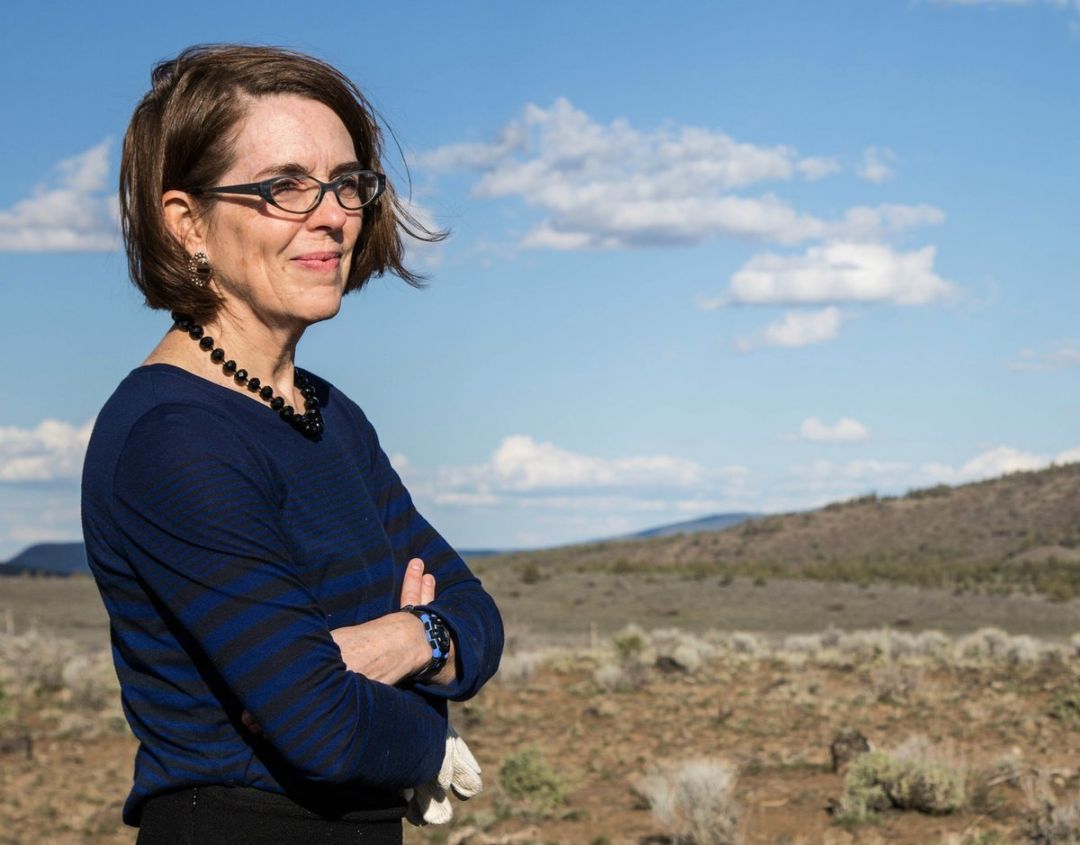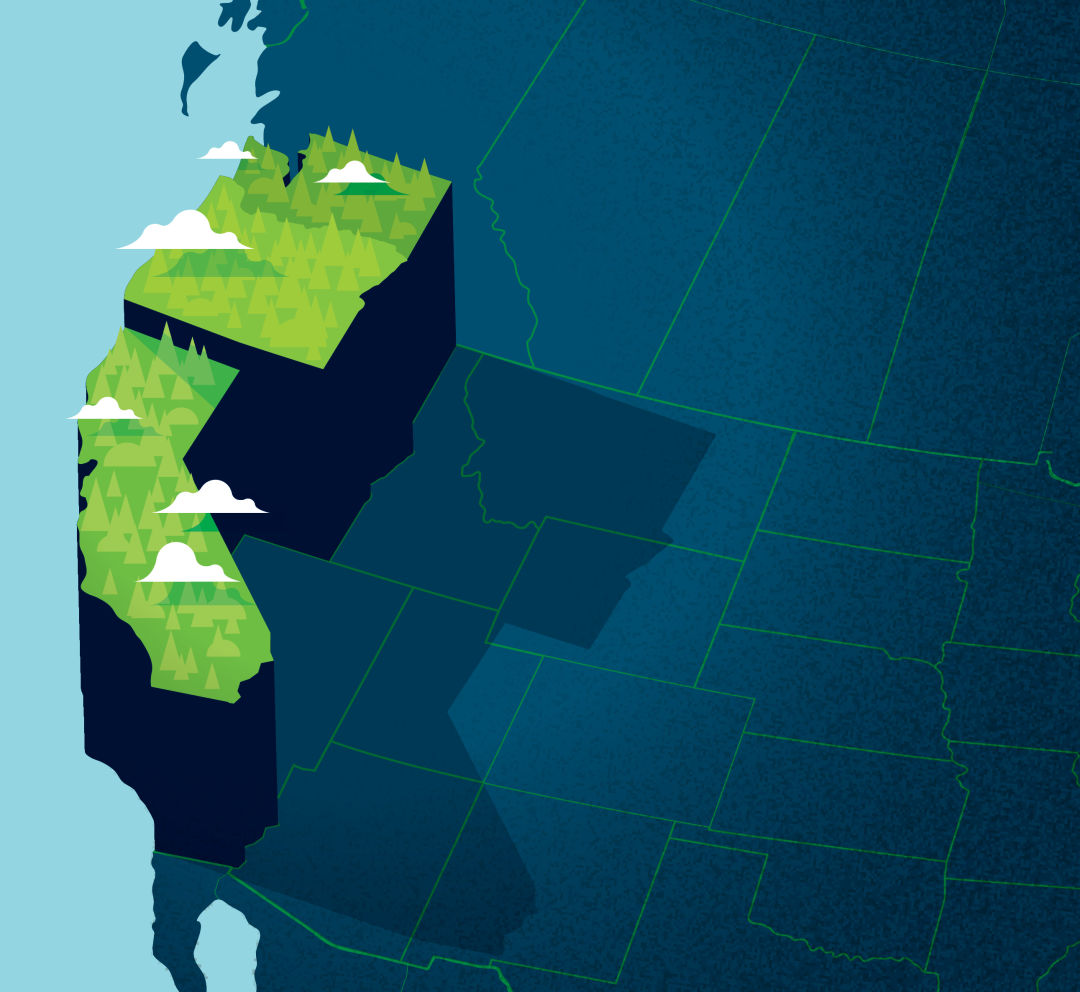Oregon's Fierce Response to Trump's Climate Move Is Just the Beginning

“I want to be clear,” Oregon Governor Kate Brown tweeted on Friday, June 2. “Oregon is committed to meeting the goals of the Paris Agreement.”
About a week after President Donald Trump signed a sweeping executive order—yes, yes, aren’t they all—slicing some Obama-era environmental regulations, Kate Brown sat in her office in Oregon’s capitol, sounding about as defiant as she ever gets.
“We’re already seeing the effects of climate change,” the mild-mannered, policy-first Democratic governor told me. “In ’15, we had one of the most devastating wildfire seasons we’ve ever had. By 2040, that will be the norm. We have to be resilient, and we have to be prepared.”
Can a small state chart a course independent of an administration that seems determined to set climate policy ablaze?
“We’re going to,” Brown said. “That’s the reality. Oregon is committed to cutting carbon emissions.”
Flash to this week: Trump pulls the United States out of the international Paris climate accord, summoning widespread condemnation that included French president Emmanuel Macron’s outright seduction of American scientists and engineers. More or less as Trump exited the White House Rose Garden, however, Brown and other state and local leaders moved to seize the environmental leadership forfeited by the Administration. “I want to be clear,” Brown tweeted. “Oregon is committed to meeting the goals of the Paris Agreement.”
Indeed, the state’s current goals call for an 80 percent slash to greenhouse emissions by 2050. And if that suggests a long road, Oregon doesn’t walk alone. This spring—weeks before Paris was burning in DC—Brown responded to that earlier Trump order with a joint statement with the governors of California and Washington and mayors from Portland, Seattle, Oakland, San Francisco, and Los Angeles. “We won’t let the president’s misguided decision limit ... our commitment to doing what’s right,” the group declared. Rhetoric, sure, but rhetoric from a South Korea–size population bloc.

A green front against Trump?
Image: Michael Novak
That Left Coast united front exemplifies a concept championed by progressives since November: a new green federalism, in which states and cities buck the feds to cut carbon emissions, in some cases working directly with international partners. On Wednesday, with blistering speed, California, Washington, and New York announced a new “United States Climate Alliance.” Environmentalists now talk of Oregon and Washington forming “a thin green line” to block coal and oil exports to Asia. The Pacific Coast Collaborative—a nine-year-old trade and environmental pact between the West Coast states and British Columbia—swore loyalty to the Paris accords in November. (In BC, it seems likely that the fast-growing Green Party will provide key support to a new, environment-focused provincial government.) Portland, like many progressive cities, maintains aggressive carbon-reduction goals, which helped win recent praise from the global C40 alliance of cities.
Sounds good: small governments banding together in dynamic networks to spurn the Big Government. But can this amount to more than happy talk?
“A lot of it is bravado. ‘This may be happening in DC, but we can hunker down here and do good.’ But we really will,” says Angus Duncan, chair of the Oregon Global Warming Commission and president of the Bonneville Environmental Foundation. He notes that Northwest agencies and utilities are moving relatively fast to shut down coal plants and switch to renewables—and that market and technological changes have unleashed shifts Trump probably can’t stop and smaller governments can accelerate.
“Solar and wind are now cost-competitive,” Duncan says. “State and city regulations and incentives will be essential to give those technologies a bump.”
Constitutionally, this prospects of states, united (but not the United States, exactly) explores murky territory. States can form “compacts.” But Erin Ryan, a former Lewis & Clark law professor now at Florida State, notes that Congress must approve any that encroach on federal authority. Beyond that, she calls the law of compacts “not well developed”: “How enforceable are they? How can disputes be arbitrated? How easy is it to get out?”
Ryan, who has written about “climate federalism,” sees lower-tier action as second-best to effective national policy, but relevant. “Our system provides fail-safes,” she says. “If one level of government falls down on an issue, another level can take up the slack.”
This week, especially, environmentalists, scientists, and breathers of oxygen may find themselves hoping there's something to that.
This is an updated and expanded version of an article that will appear in the July 2017 issue of Portland Monthly.









